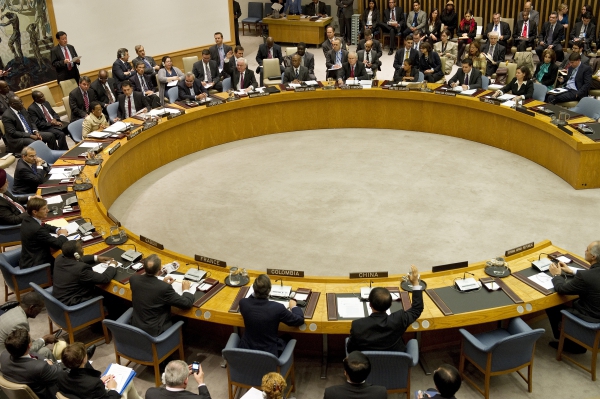Highlight of the transitional justice week was the Nobel Peace Prize awarded on Friday to Colombian President Juan Manuel Santos, five days after a referendum in Colombia which was supposed to seal a peace deal between the government and the FARC rebel movement, ending 50 years of civil war.
The Nobel committee, which is used to supporting fragile peace processes, gave it prestigious prize to the Head of State but also the people of Colombia, notably the victims of this deadly conflict. On the other hand, the committee deliberately decided not to give the prize also to the FARC and its leader Timoleon Jiménez, known as Timochenko, whose methods and ideology help to explain why the Colombian people voted “no” in the referendum.
The victory of the “no” vote was by only a small margin and was unexpected, but is undeniable. President Juan Manuel Santos, who had staked everything on the accord and referendum, had said he prefers “an imperfect peace to a perfect war”. The government and the FARC both said that the peace accord remains valid, but without public support -- which had been thought to be massive --, Colombia’s reconciliation process will struggle. The causes of this defeat for the President’s side are complex and many: rivalry between Santos and his predecessor Alvaro Uribe, who did all he could to get the accord rejected; fear of “Communist” control of the country; and Colombians’ concern that those responsible for the war, notably the FARC, would escape justice. The Nobel committee’s blessing can no doubt help reassure those who voted against the accord. But the fact remains that through their vote, Colombians signalled that the reconciliation process must be accompanied by respect for the rule of law, rejecting impunity and immunity.
These fundamental principles are also important in Burundi, where the international community warned that President “Pierre Nkurunziza, his supporters, and all those who chose the path of violence should be aware that they will not get away with their crimes”, to quote Dimitris Christopoulos, new president of the International Federation for Human Rights (FIDH). The UN Human Rights Council this week voted to set up an international commission of inquiry on serious crimes committed in Burundi since last year. The Burundian government, in a classic move, accused Belgium and France of being behind this resolution. Faced with such threats, it also announced its intention to withdraw membership of the International Criminal Court. This would not, however, protect it from prosecution since a withdrawal would not be retroactive.
In Syria too, “Putin’s Russia and the Assad regime have committed and continue to perpetrate war crimes,” says an article of The Conversation republished by JusticeInfo. “This has been stated notably by UN Secretary General Ban Ki-moon, by the United States, the United Kingdom and France.” But once again on Saturday, the UN Security Council failed to impose a ceasefire in Alep, owing to a Russian veto of a French resolution. Author of The Conversation article Nicolas Tenzer, professor at Sciences Po in Paris, explains that despite the verbal condemnations, international justice does not have the power to go after Putin or Assad.
On a more positive note, the International Criminal Court (ICC) has decided to extend its priorities to environmental crimes and land-grabbing. Cambodia could be an exemplary first case. That country has seen "massive land-grabbing and the associated crimes of forcible transfer of population, illegal imprisonment and sometimes murders committed by the ruling elite against Cambodian civilians," British lawyer Richard Rogers of Global Diligence told JusticeInfo. "This has been going on for the last 15 or 20 years”, he adds, saying that the widespread and systematic nature of the crimes amounts to crimes against humanity.







